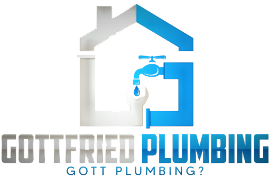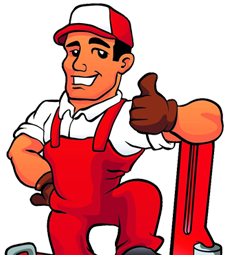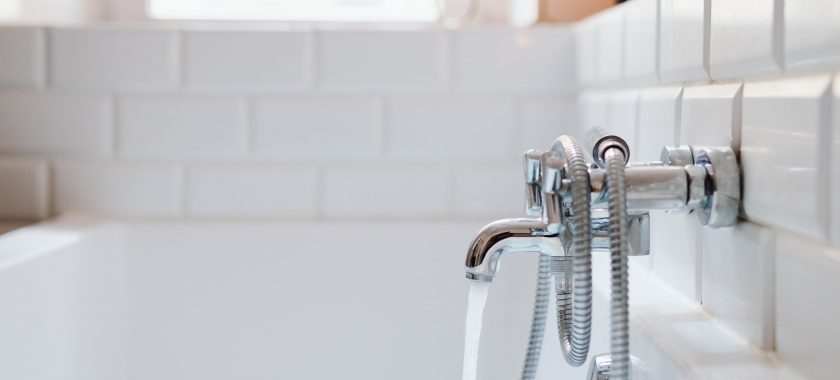Choosing a water heater may seem straightforward, but with various types, sizes, and energy sources available, finding the perfect fit for your Boerne home can be a bit more complex. From assessing your household’s hot water needs to considering energy efficiency and long-term costs, several key factors can help you make the best choice.
In this guide, we’ll walk you through what to consider so you can confidently select a water heater that meets your budget and your home’s unique requirements.
1. Understand Different Types of Water Heaters
Choosing the right water heater for your Boerne home starts with understanding the options available: traditional storage tank water heaters and tankless (on-demand) water heaters.
Traditional Storage Tank Water Heaters
These are the most common types. They consist of a large tank that stores heated water powered by gas or electricity. While affordable upfront, they tend to be less energy-efficient and take up more space in your home.
Tankless (On-Demand) Water Heaters
Tankless water heaters heat water only when needed, saving energy in the long run. However, they have higher initial costs and may struggle to keep up with high water demand, especially in larger households.
2. Assess the Household Hot Water Needs
Evaluate your household needs before selecting a water heater. Some factors to consider include:
Number of people: Assess how many people will be using hot water. If you have a large family, a conventional storage water heater might be the best option to guarantee enough hot water for everyone.
Peak usage times: Identify your peak hot water usage times, such as early morning when everyone is getting ready for school or work.
Future changes: Reflect on any future changes, such as additional family members or new appliances that use hot water.
3. Check the Available Space for Water Heater
Think about the space available in your home before selecting the water heater for your Boerne home.
Standard and Tall Water Heaters: These traditional models range from 50 to 76 inches tall and can hold up to 100 gallons of water. They work best in areas with ample vertical space, such as basements or garages.
Lowboy and Short Water Heaters: Lowboy or short models are excellent alternatives for homes with limited space. They perform similarly to standard water heaters but fit into tighter spaces.
Tankless Water Heaters: A tankless water heater is a compact solution if you’re short on space or have lower hot water needs. These models can be mounted on a wall, saving valuable floor space.
Hybrid Water Heaters: While highly efficient, hybrid water heaters require extra room for their additional components. You may need to check the manufacturer’s guidelines to ensure you have adequate space for installation.
4. Consider the Tank Size
If you choose a tank that is too small, you will run out of hot water during peak usage times. Conversely, an oversized tank wastes energy and may spike your utility bills.
Storage Tank Water Heaters
The size of a storage-tank water heater is determined by its first-hour rating (FHR), which tells you how much hot water it can supply in the first hour after the tank is fully heated.
30-gallon tank: Suitable for homes with 1 to 2 people
40-gallon tank: Ideal for households of 2 to 3 people
50-gallon tank: Works well for families of 3 to 4 people
80-gallon tank: Recommended for homes with 5 or more people
Tankless Water Heaters
Since tankless units don’t store hot water, their size is based on the flow rate, which measures how many gallons of hot water are delivered per minute (GPM).
- For homes using 1 to 2 fixtures simultaneously, a flow rate of at least 3.5 GPM is recommended.
- A flow rate of 7 GPM or more is ideal for heavier use with multiple fixtures.
5. Select the Location for Water Heater Installation
The right location for your water heater will impact how well it functions and how much space you save.
- Measure the space: Ensure the installation space can accommodate the water heater without crowding the surrounding area. For traditional water heaters, check the tank dimensions, and for tankless models, focus on the unit’s footprint.
- Evaluate ventilation: Proper ventilation is critical, especially for gas-powered water heaters. Make sure the area allows for adequate airflow to prevent carbon monoxide buildup and other hazards.
- Accessibility: Select a location that’s easily accessible for maintenance and repairs. Routine checks will be simpler and more convenient if the unit is within reach.
- Proximity to water outlets: Installing the water heater near major water outlets like faucets and showers can help reduce piping costs and improve energy efficiency by minimizing the distance hot water needs to travel.
6. Estimate Your Budget for Water Heater
When choosing a water heater, the initial purchase price and ongoing operating costs are key considerations. Traditional tank water heaters typically have a lower upfront cost, making them appealing to budget-conscious homeowners. However, they often have higher utility bills and may require more maintenance. In contrast, tankless water heaters have a higher initial price but can save money in the long term by reducing energy consumption and offering a longer lifespan.
Additionally, the type of fuel used will affect your costs.
- Natural Gas: A cost-effective, efficient choice with a fast recovery rate, ideal for households with high hot water needs.
- Electricity: Easier to install and a good option for homes without natural gas, though running over time may be more expensive.
- Propane: A great alternative for homes without access to natural gas, particularly in remote locations or vacation homes.
- Solar Energy: Environmentally friendly and cost-effective in sunny regions, solar heaters use sunlight to heat water.
7. Consider the Energy Efficiency
When selecting a water heater, prioritizing energy efficiency can save you money and reduce your carbon footprint. A high Energy Factor (EF) rating indicates that the water heater efficiently converts energy into hot water, lowering utility bills and environmental impact. Water heaters like heat pumps and solar models offer highly efficient, eco-friendly options.
Reduce Operating Costs
Consider the fuel type and operating costs to further enhance efficiency. Natural gas heaters are often cheaper than electric models, depending on local fuel prices. Heat pump water heaters can be two to three times more energy-efficient than conventional electric resistance water heaters. On the other hand, solar water heaters harness the sun’s energy to cut bills.
Minimize Emissions
Selecting the right fuel type and efficient models can reduce emissions. Electric heaters produce fewer emissions than gas models, and proper installation and maintenance help ensure safe, efficient operation. Additionally, longer-lasting, low-maintenance water heaters reduce the environmental impact of frequent replacements.
8. Consider Maintenance and Repair Costs
When choosing a water heater, it’s important to factor in ongoing maintenance and repair costs beyond the initial purchase. Regular maintenance is essential for extending the life of your water heater and preventing costly breakdowns.
- Traditional Storage-Tank Water Heaters: These require maintenance every 6 to 12 months, such as draining the tank to prevent sediment buildup and checking for leaks. With proper care, these units typically last 10 to 15 years.
- Tankless Water Heaters: Maintenance is less frequent, around every 12 to 24 months, and they have a longer lifespan, often lasting up to 20 years.
Including these maintenance costs in your budget will ensure your water heater operates efficiently and can help prevent expensive emergency repairs down the line.
Finding the Perfect Water Heater for Your Boerne Home
Selecting the ideal water heater for your home involves understanding the types available, assessing your hot water needs, considering space, and evaluating energy efficiency and costs. Whether you opt for a traditional or tankless storage tank, choosing the right system will help you enjoy long-term savings and comfort.
If you’re ready to upgrade or need expert advice on water heater installation, Gottfried Plumbing is here to help. With our professional services, we’ll guide you in selecting the perfect water heater for your Boerne home. Contact us at (830) 331-2055 to schedule your consultation or installation!


